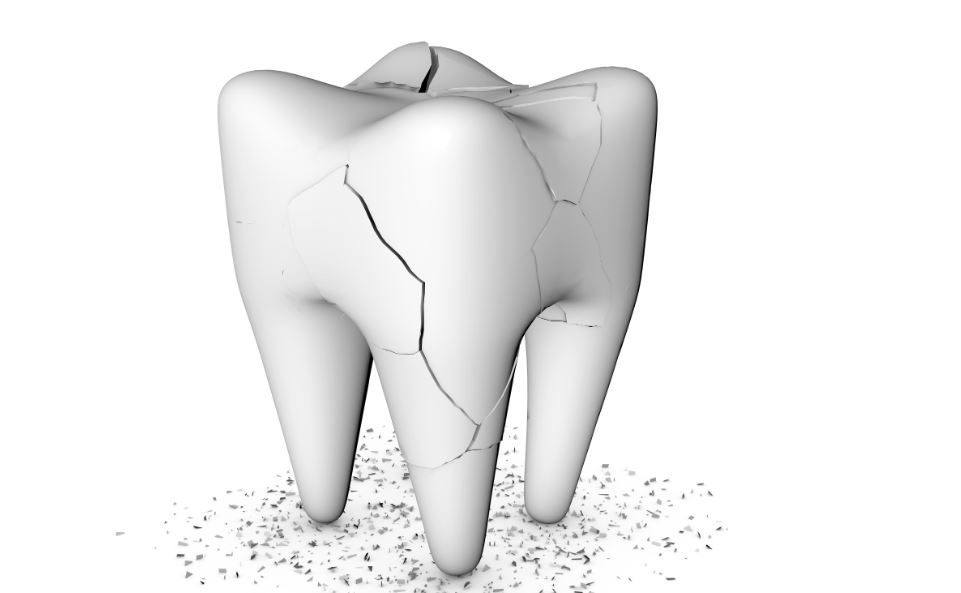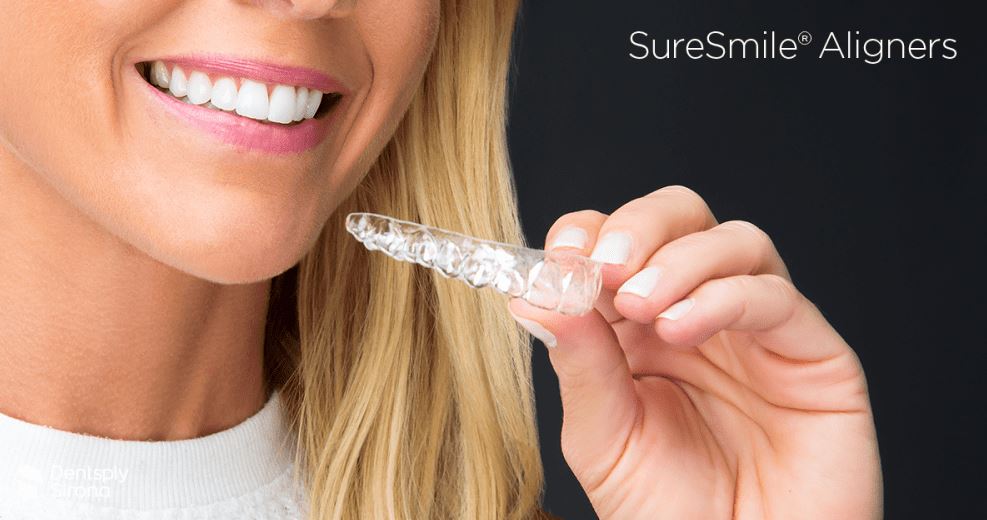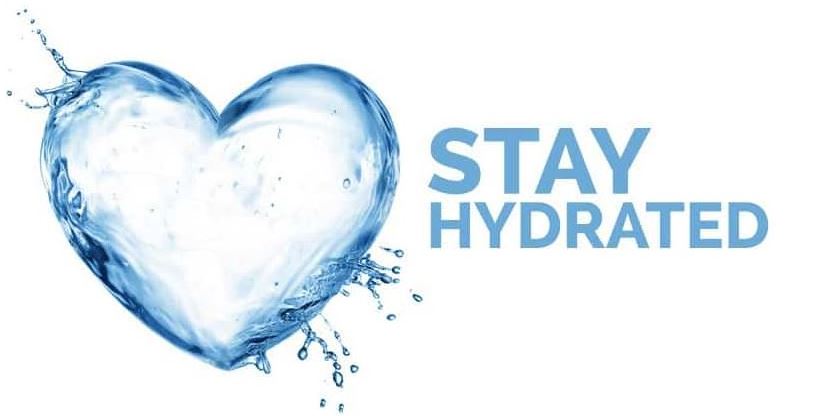
There are various ways in which teeth can become cracked or develop cracks. Cracked teeth are a common dental issue that can range from minor, superficial cracks to more severe fractures.
Here are some different ways teeth can become cracked:
The severity of a cracked tooth can vary widely, ranging from minor surface cracks that don’t require treatment to deep fractures that may necessitate dental intervention, such as a crown, root canal, or extraction. If you suspect you have a cracked tooth or experience any tooth pain or sensitivity, it’s crucial to consult with a dentist for a proper evaluation and appropriate treatment recommendations. Early detection and treatment can help prevent further damage and discomfort.
Related Article: My Tooth Hurts! Do You have a Broken or Cracked Tooth?
While it’s not always possible to prevent cracked teeth entirely, there are several measures you can take to reduce the risk of experiencing cracked teeth:
While these measures can reduce the risk of cracked teeth, accidents can still occur. If you suspect you have a cracked tooth or experience any tooth pain or sensitivity, it’s essential to seek prompt evaluation and treatment from a dentist. Early intervention can prevent the problem from worsening and ensure the best possible outcome for your oral health.
Mouthguards are essential for protecting your smile and are suitable for individuals of all ages, including children and adults. With many kids returning to school and participating in various sports like basketball, soccer, football, volleyball, gymnastics, and more, it’s crucial to recognize the significance of mouthguards.
Even if you or your child engage in recreational activities such as skateboarding or hiking, mouthguards offer a valuable layer of protection to reduce the risk of oral injuries and possibly prevent cracked teeth.
Moreover, mouthguards are commonly used by adults and children who experience Bruxism, a condition characterized by teeth grinding at night. At Adams Dental Group, we specialize in creating custom-fitted mouthguards that are not only comfortable but also perfectly tailored to fit your mouth. These mouthguards effectively safeguard your teeth during sleep, preventing damage caused by teeth grinding, and ensuring a restful night’s sleep.
Mouthguards are dental devices designed to protect the teeth and mouth from injury during physical activities or to address specific dental issues.
Here are some key points about mouthguards:
Advancements in dental care and materials lead to new developments in mouthguard technology and options. It’s a good idea to consult with your dentist for the most up-to-date information and recommendations regarding mouthguards.
While the term ‘custom mouthguard’ often brings to mind protection during sports, it’s important to recognize that not all mouthguards serve the same purpose. The Mandibular Advancement Device (MAD), as we fondly refer to it, is a unique nighttime mouthguard.
Unlike sports mouthguards, the MAD is designed to fit snugly over both your upper and lower jaws. Its primary goal is to gently pull forward and reposition your jaw, creating an unobstructed airway. This repositioning can significantly reduce snoring and greatly enhance your breathing while you sleep.
Mouthguards protect your smile, whether you’re an athlete or grind your teeth while you sleep!
Related Article: Mouthguards Provide Protection for Your Teeth
Certainly, stress can have a significant impact on oral health. Addressing these issues is essential to maintaining a healthy mouth. Here’s an outline of the six main ways stress can affect oral health:
We feel it’s important to raise awareness about these connections between stress and oral health and encourage individuals to manage stress effectively through relaxation techniques, exercise, and seeking support when needed. Additionally, maintaining consistent oral hygiene practices and seeking dental care for stress-related oral issues are essential steps to prevent cracked teeth and preserve oral health during stressful times.
Related Article: Stressed Out Oral Health: Gum Disease, Clenching and Grinding
One common consequence of stress is teeth grinding, a condition known as bruxism. Stress can cause us to clench our jaws and grind our teeth during the day and even at night. For individuals already struggling with teeth grinding, stress can exacerbate the problem, making it even more challenging to handle and even more difficult to prevent cracked teeth.
Untreated bruxism can lead to serious issues like loosening teeth and temporomandibular joint disorder (TMJ), which results in pain and discomfort in the jaw. To address this, consider discussing night guard options with us to effectively put a stop to teeth grinding while you sleep.
During the day, it’s essential to be mindful of any jaw clenching and make an effort to relax your jaw when possible. Try to keep your teeth slightly apart when you’re not actively chewing or eating. These simple strategies can help mitigate the effects of stress-induced teeth grinding and promote better oral health.
Sleep apnea, while a relatively new term for many, is a common sleep disorder that affects individuals worldwide. This chronic condition is often characterized by loud and disruptive snoring. It occurs when a person experiences shallow or frequent pauses in their breathing during a typical night’s sleep.
While initially, it may seem like a mere nuisance and potentially an issue for sleeping partners, sleep apnea can be a significant health concern. It carries the potential to increase the risk of various health problems, including high blood pressure, heart disease, diabetes, complications during pregnancy, and a range of other issues.
Recognizing the signs of sleep apnea and seeking appropriate diagnosis and treatment is essential to mitigate its potential health consequences and improve overall well-being.
Learn more about Sleep Apnea
Dr. Roberts and his team at Adams Dental Group can play a crucial role in helping you prevent cracked teeth by crafting a custom mouthguard or oral appliance designed for nighttime use. These devices not only protect your teeth but also have a positive impact on your dental and mental health. There’s a strong connection between dental health and mental well-being, and fortunately, mouthguards provide an effective solution. They not only safeguard your teeth but can also assist in managing issues like sleep apnea and snoring.
Each mouthguard is meticulously custom-made by Dr. Skrobanek to ensure a comfortable fit that keeps your teeth separated, preventing them from grinding together. This personalized approach ensures that you get the maximum benefit from your mouthguard while promoting your overall oral health and quality of sleep.
While the CPAP machine remains the most effective treatment for advanced cases of sleep apnea, such as complex sleep apnea, it’s crucial to acknowledge that it might not be the right solution for everyone. If the CPAP machine doesn’t work for you, it might be time to consider a Mandibular Advancement Device (MAD).
At Adams Dental Group, Dr. Roberts can provide you with a customized MAD appliance. This custom mouthguard is designed to be both durable and comfortable for use during sleep. Importantly, many insurance plans typically cover the cost of this treatment, making it a viable and accessible option for addressing sleep apnea and it just might help you prevent cracked teeth.
Dr. Travis A. Roberts, DDS August 22nd, 2023
Posted In: Sleep Apnea

SureSmile Clear Aligners are a type of orthodontic treatment that aims to straighten teeth and correct malocclusions (misalignments of the bite) discreetly. These aligners are a popular alternative to traditional braces, offering several benefits:
Related Articles:
It’s important to note that the suitability of SureSmile Clear Aligners for your specific orthodontic needs will be determined by your orthodontist. They will assess your teeth, discuss your treatment goals, and determine if clear aligners are the right choice for you. If they are, they will create a customized treatment plan to help you achieve the desired results.
If you want to straighten teeth or improve your smile in any way or would like to know more about the cosmetic dentistry procedures we offer, just give us a call and schedule your consultation!
Dr. Travis A. Roberts, DDS August 8th, 2023
Posted In: Cosmetic

You’ve probably heard that drinking water can help clear up your skin, keep your body healthy, rejuvenate your muscles, get rid of waste, etc. There are so many benefits to staying hydrated and many of them are widely known. Essentially, there’s no better drink than water, and it makes sense with our bodies being 60% water. What sometimes isn’t known is how great drinking water is for your oral health. A simple and easy way to help keep your teeth healthy and strong is to drink more water!
Learn more about The Best Beverage
The reasons to drink water are plenty, and knowing how big of an effect water can have on our oral health makes it even more imperative to staying hydrated by drinking water every day. But how can you help your kiddos drink more water?
Why is staying hydrated and drinking water important? Here are 10 reasons for you and your kids to drink plenty of water every single day:
Water helps kids stay hydrated–which is important for their brains to work and for them to stay healthy!
Dehydration means that your body doesn’t have enough water to function properly. Seventy-five percent of people (including children) are chronically dehydrated.
Even mild dehydration will:
The human body has no stored water to draw on during dehydration so it’s vitally important that your child drinks water throughout the day.
Dehydration can happen very quickly—keep water with you in the car for thirsty kids. If they play sports or are involved in strenuous extra-curricular activities, send them with plenty of water in their backpacks.
If your children come home from school grumpy or tired—give them a glass of water.
Your children need water for their cells to grow. As they grow, 75% of the cell volume must be filled with water. This is one reason why children develop asthma and allergies during the growth stage of their physical development–they don’t have enough water for their body systems to function. Some research indicates that asthma can be caused by chronic dehydration and by increasing water and adding a bit of salt to the tongue, asthma coughing disappears.
Kids are also susceptible to allergies if they increase their food intake but not their water intake.
If you have a child who suffers from asthma or allergies, water obviously will help. Kids with allergies should drink a glass of water BEFORE eating food. And kids with asthma need to drink more water. They also need to stop drinking sodas containing caffeine and reduce their orange juice consumption which can trigger an allergic reaction in some children.
In a University of Washington study, it was discovered that dieters who drink one glass of water before bed will shut down late-night hunger pains by almost 100%! Drinking water helps separate the feelings of thirst and hunger. Thirty-seven percent of Americans suffer from a very weak thirst mechanism. In fact, it is so weak that it is often mistaken for hunger. Many kids and parents who feel hungry are really in need of water.
Does your child get up at night complaining of hunger or thirst? If so, either give him/her a glass of water an hour before bedtime or even 30 minutes before bed. If they get up feeling hungry or thirsty—give them another glass of water. You’re probably thinking, “they are going to be up all night going to the bathroom.” Possibly, but if your child’s body is in need of water, the water they drink will be used to replenish their organs and cells.
When your kids are thirsty, they get tired very easily. In fact, studies show that not replenishing the body with water is the #1 trigger of daytime fatigue.
Kids in school need water to help:
Send bottled water with your children to school. Let their teachers know exactly why you are doing this. If they don’t understand, encourage them to read the research connecting water to learning.
Back, joint and muscle pain are not relegated to the aging. It can also happen to your kids. Growing pains are common among children. Preliminary research indicates that 8-10 glasses of water a day can significantly ease back, joint and muscle pain for up to 80% of sufferers.
If your kids are experiencing growing pains, give them plenty of water throughout the day and a glass of water about one hour prior to them going to bed (so they can empty their bladder before they nod off). It should help.
Did you know that a mere 2% drop in body water can trigger fuzzy short-term memory? It can also cause kids to have problems understanding basic math, and have difficulty focusing on a computer screen or printed page in a book. Drinking water every day can help prevent memory loss well into old age.
Before starting their homework, make certain your kids have had a big glass of water to drink. And as mentioned above, send them to school with a bottle of water. It’s necessary for their memories and learning.
Drinking water can help ward off certain cancers. For instance:
Water also helps to normalize the blood-manufacturing system in the bone marrow which helps prevent childhood leukemia and lymphoma.
Although some of these forms of cancer are not cancers common in children, it’s a good idea to get your kids in the habit of drinking plenty of water every day. It just may help prevent certain cancers when they are adults because water keeps the immune system working at peak performance and can fight infections and cancer cells where they are formed.
If your child sips water throughout the day, they will keep their systems hydrated and their abilities to learn and function will substantially increase. If they guzzle water (drinking it very rapidly) they will cleanse their systems. Both are helpful for their bodies and minds.
Either sipping or guzzling water is good for your child’s health.
Many parents think that as long as their child is getting some form of liquid (milk, juice, soda) in their systems, they will be hydrated. This is partially correct. However, sodas and juices are loaded with sugar and sugar drains water from the colon and can cause constipation and/or diarrhea. Plus, the sodium in sodas increases dehydration. Kids don’t need excess salt or sugar in their diets. It impedes their ability to learn. They need water.
Make water your family’s #1 beverage choice. You’ll be glad you did. You will notice your children having sustained, focused energy; their brains will work better and more efficiently which all translates into a healthier more positive learning experience.
When your kids get to be teens, they will be concerned about their skin. Having healthy, acne-free skin is important for teens and their self-esteem. There are many reasons for teen acne, but several things that can help is drinking plenty of water, giving up sodas and eating plenty of fruits and veggies. Fruits and veggies are loaded with water and will help clean out the cells.
Drinking water every day will help improve your teen’s skin by:
These tips and additional information can be found in the article titled: 10 Amazing Benefits of Drinking Water and How it Makes Kids Smarter
Related Article: Preventative Dentistry for Kids: Dental Health for Healthy Smiles
As you know, it’s important for everyone to have a solid foundation of oral health habits. Not only does that include brushing and flossing daily, but also having healthy habits — including staying hydrated by drinking water! Why is drinking water important for you and your family? I hope we answered that question in this blog. Dr. Roberts and his Team love to talk about dental health and look forward to answering any of your questions during your next dental appointment.
Dr. Travis A. Roberts, DDS July 18th, 2023
Posted In: Dental Health Tips
Tags: childrens dental health, dental health, dental health awareness, oral health